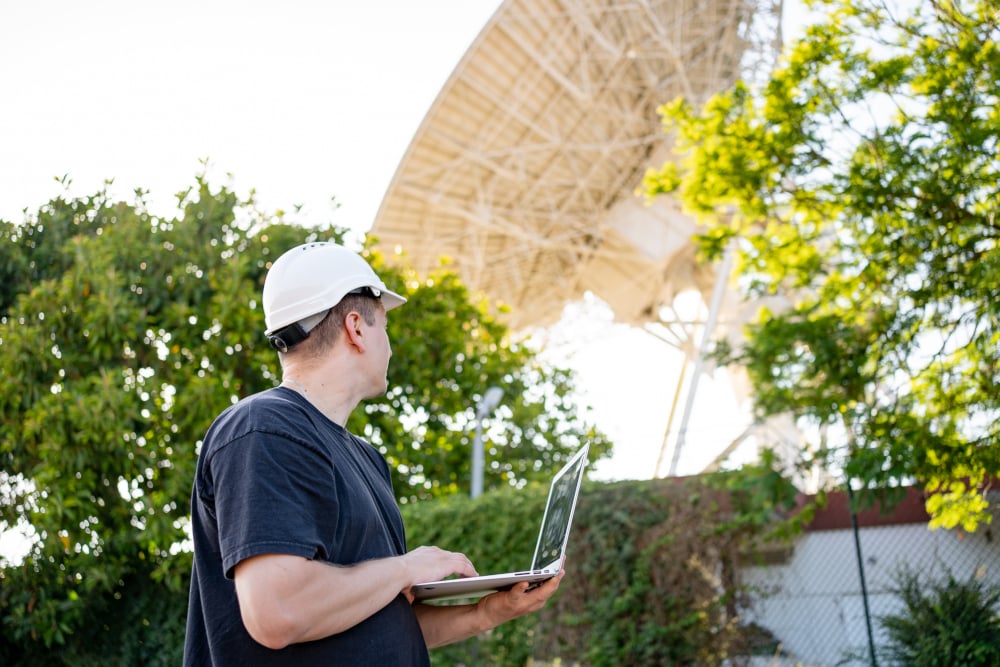Capture Elusive RF Signals with Advanced Software for Handheld Spectrum Analyzers

RF signals are more dynamic and unpredictable than ever, which presents new challenges for engineers. Even traditional vector spectrum analyzers struggle to capture transient or intermittent signals, leaving you without a complete picture of how your circuit or system is performing.
Tektronix SignalVu-PC software now provides three advanced triggers enabling you to visualize, capture, and analyze very elusive, unpredictable, and dynamic RF signals even when using Tek’s most compact, handheld spectrum analyzers. Let’s explore how each trigger works and how it can supercharge your RF troubleshooting.
DPX™ Density Trigger: Capture What Others Miss
In dynamic RF environments, such as radar or communication systems, signals can be sporadic or short-lived, making them sometimes invisible in a traditional spectrum analyzer. Tektronix real-time spectrum analyzers with DPX™ technology capture hundreds of thousands or even millions of spectrums per second, enabling a real-time view of the spectrum that highlights these fleeting events.
The DPX density trigger continuously monitors the density of energy within a defined frequency range and amplitude. It allows the user to set a density threshold in a specific area of the spectrum (both in frequency and amplitude). When the density in that area exceeds the threshold, the trigger is activated. This is particularly useful for signals that appear infrequently or vary significantly in power.

This feature is crucial when working with crowded or dynamic spectrum environments, such as over-the-air testing, where unplanned or transient signals might arise. You no longer need to rely on luck to capture these events—DPX technology ensures that transient signals don’t go unnoticed. Watch our video to learn about the advantages DPX technology offers in spectrum monitoring or surveillance applications.
Frequency Mask Trigger: Precision Triggering in the Frequency Domain
The frequency mask trigger (FMT) lets you define a spectrum “mask” with specific values in frequency and amplitude, an area of the spectrum that you want to monitor. When a signal crosses the boundaries of this mask, either by entering or leaving it, the trigger activates. This is especially powerful when monitoring systems that need precise control over specific frequency bands, such as communication systems, radar, or any frequency-hopping radio technologies.

For example, let’s say you are testing a communication system and want to capture any event when a signal exceeds a certain frequency range. If a signal crosses into the masked frequency range, the FMT triggers and captures the event. You can further refine the capture by setting triggers for when the signal leaves the mask or even when it oscillates in and out of the defined region.
This level of control is critical when you’re trying to isolate a frequency-specific anomaly, for example monitoring for spurious emissions in a transmitter or identifying illegal frequency band intrusions.
Time-Qualified Trigger: Perfect for Pulsed RF Systems
Pulsed RF environments are challenging to troubleshoot because signals of varying pulse durations can coexist within the same system. The time-qualified trigger solves this by allowing you to define triggers based on the duration of a signal.
With a time-qualified trigger, the user set specific time thresholds for pulses. This is extremely helpful in radar or pulse communication systems, where different pulse lengths correspond to different types of data or states within the system.

In practice, imagine you have three types of pulses: one lasting 20 microseconds, one at 50 microseconds, and another at 100 microseconds. By setting the trigger to capture only signals between 30 and 60 microseconds, you effectively filter out the shortest and longest pulse and isolate the 50-microsecond pulse. The time-qualified trigger allows you to pinpoint specific pulse events without getting overwhelmed by irrelevant data.
In pulsed RF systems, the time-qualified trigger provides the precision needed to capture only relevant signals, whether you’re analyzing radar pulses, burst communication systems, or isolating other RF emissions.
Ready to Tackle New RF Challenges?
SignalVu-PC and Tektronix compact, portable 306B, 500 and 600 series RSAs provide the advanced tools you need to conquer today’s RF challenges. Whether you’re working in crowded spectrum environments or analyzing pulsed systems, these advanced triggers—DPX Density, Frequency Mask, and Time-Qualified—give you greater precision, control, and understanding of your signals.

Don’t let critical signals slip by. Try SignalVu-PC spectrum analysis software with Tektronix handheld spectrum analyzers and start capturing the data that matters most.


